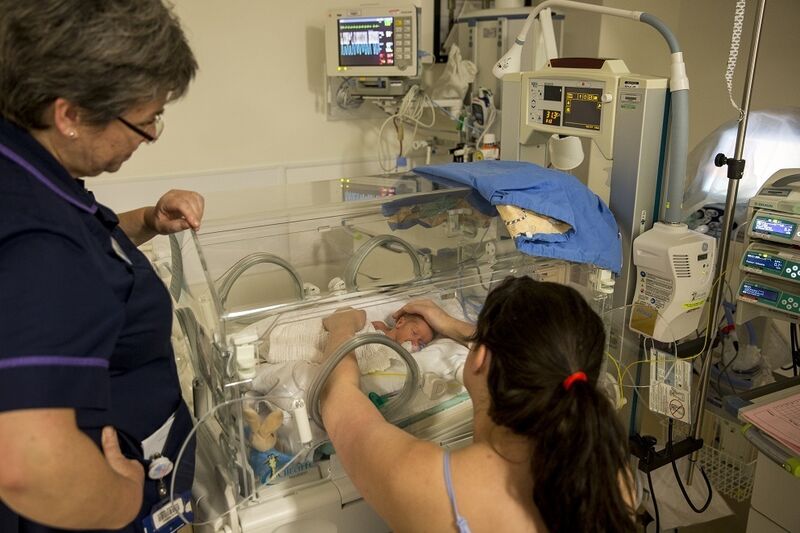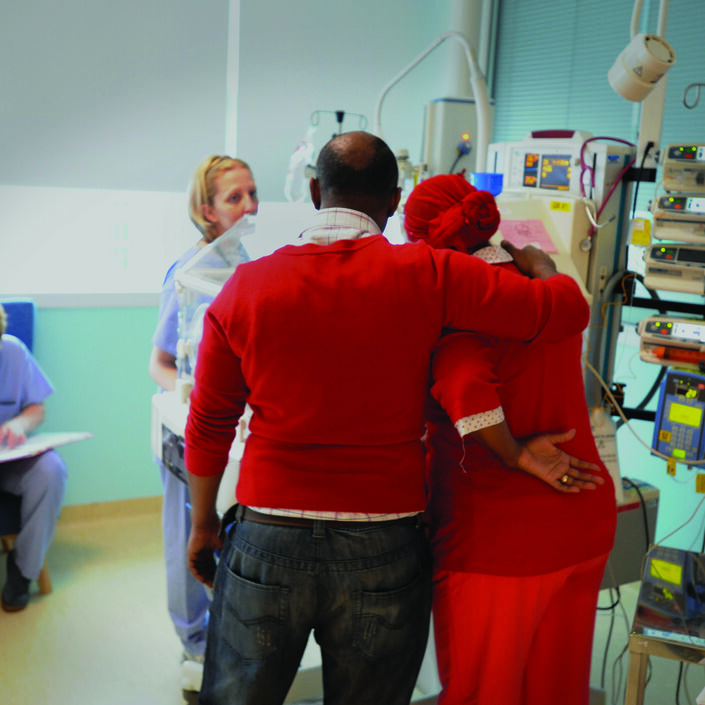What to look out for in parents who may be struggling with their mental health
Here, Helen shares her guidance on what healthcare professionals should look out for when meeting with parents on the neonatal unit:
Use observational and listening skills to pick up how parents are feeling and coping. As health professionals you have invaluable experience of being with people; what are you hearing and seeing? What do you feel? Speak to the parents separately, if you can, to give each one a chance to speak openly about any birth trauma or distress they are experiencing.
Listen carefully. Parents may be subtly telling you they are struggling with their mental health but do not want to tell you explicitly for fear of being judged as a ‘bad parent’. It can take a while to build up trust with some parents. Don’t necessarily take ‘I’m fine’ at face value; it’s always worth exploring a bit more. This might mean coming back on a different day to ask again, keep checking in and create lots of opportunities for families to talk to you, don’t just ask once.
See how they’re interacting with their baby. Feelings of anxiety and low mood can come from not understanding their role on the neonatal unit and they may need support in caring for their baby. Encourage them to bond with their baby by being involved in their care.
Check if they are caring for themselves. Do they look well? Tired? Unkempt? Are they taking breaks for food and water? Do they seem withdrawn and unable to engage with you in a conversation? Are they displaying signs of worry and anxiety without being able to feel reassurance from staff on the unit?
Notice how often they are visiting. If they come rarely, then it might be worth exploring why this is the case. It may be that it is a long way to travel, or they have other childcare commitments, however it might also mean that they are avoiding coming in due to anxiety or the trauma of the experience. Similarly, if parents are there all the time, think about whether they are looking after themselves, and consider exploring how they can get some rest. It could also be a sign of anxiety about leaving their baby.
Many parents find it hard to be told to go home if it means leaving their baby on the unit. If there are options for parents to rest somewhere nearby, this might help.
Financial concerns can also impact how often parents might be visiting. Let them know their what support is available for them if they are struggling as this often brings a lot of worry and guilt. You can also direct them to Bliss’ financial information and support hub.
Ask about their mental health history, what treatment have they had/are they having (if any) and how they coped, in a sensitive and supportive way. Past (and current) mental health problems increase the risk of someone becoming unwell in the perinatal period.
Although uncommon, postpartum psychosis is a severe mental health condition that usually occurs in the first few weeks after giving birth and needs immediate psychiatric assessment and treatment. Learn about symptoms including hallucinations, delusions and mania, and always refer the parent for immediate assessment if you have any concerns.
Be aware of any changes in parents’ mood, and their behaviour and interactions during their time on the unit. Some parents’ reactions to the trauma of birth will transition over time, however if the symptoms appear to remain, for example, low in mood or anxiety over a number of weeks, then this may indicate a more chronic problem.
If you think someone is struggling, discuss it with the multidisciplinary team so that a support plan can be put in place whilst the baby is in the unit. If appropriate, work with other professionals involved in their care – for example a social worker, midwife, or counsellor in order to create a support network around the family.
You might want to discuss referral to their GP or local perinatal mental health services if you think that they need more specialist input.


